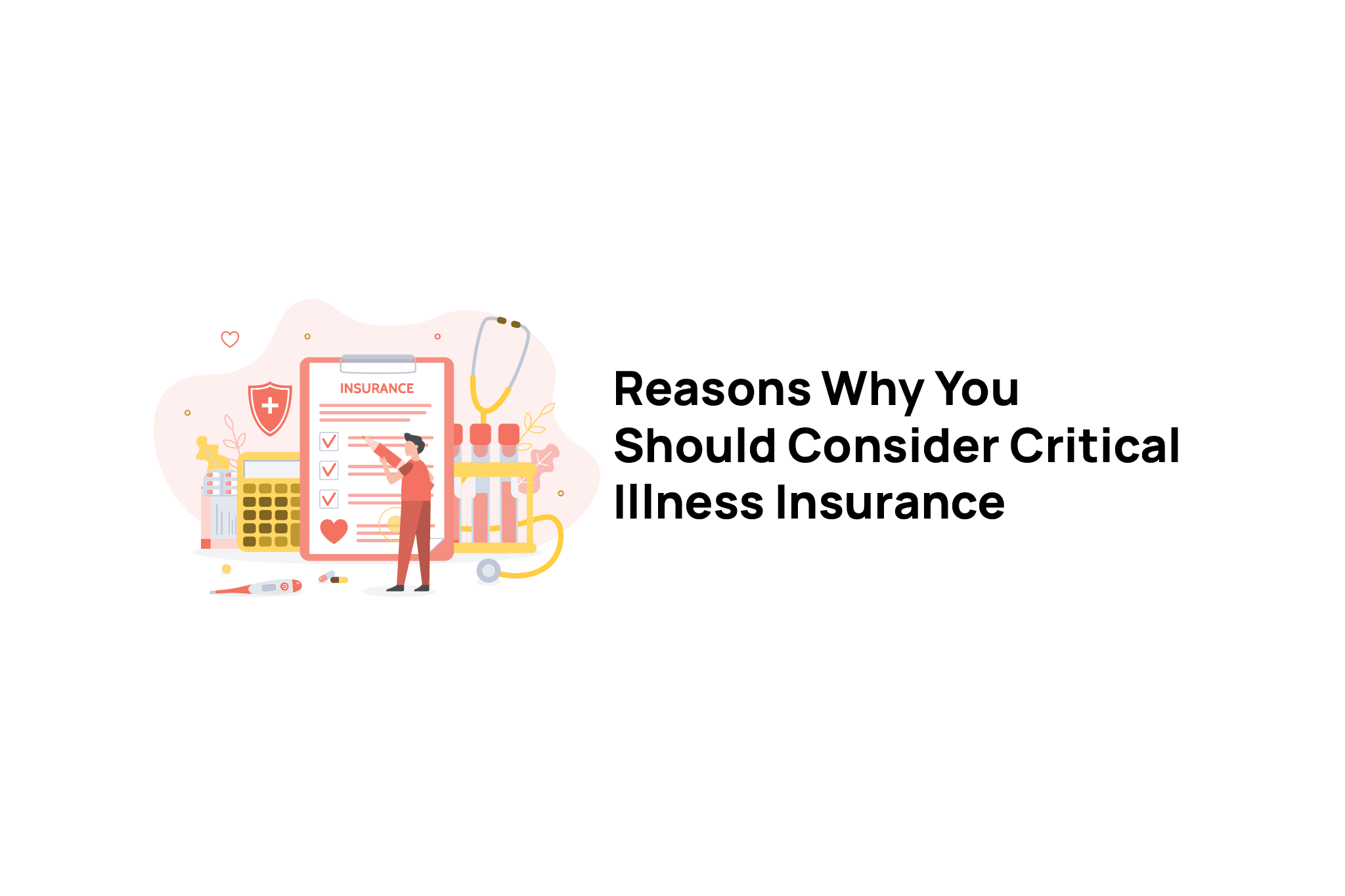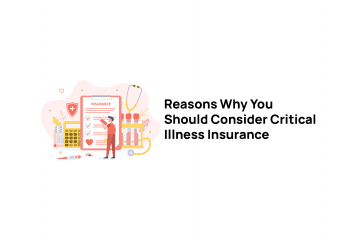Critical Illness Insurance, often called a CI policy, is an important part of any financial security plan. It is part of the living benefit category for insurance policies. This means that if there is a covered event (illness in this case), and you survive a set period of time (laid out in the policy), as the policy owner, you receive the lump sum benefit payment. Let’s have a quick look at how this product was created and then at some reasons why Canadians should consider making it part of their insurance plan.
In This Article:
The Birth of Critical Illness Insurance
The risk of being diagnosed with a covered condition is high
The odds of surviving a critical illness are increasing
Healthcare costs can be expensive
You might not be able to get disability insurance
Some critical illness policies offer premium returns
Critical Illness Insurance protects your assets
Critical Illness Insurance Conclusion
The Birth of Critical Illness Insurance
Critical illness insurance was created in 1983 in South Africa when a doctor, Dr. Marius Barnard, aimed to fix an alarming trend he saw with his patients. To provide a bit of context, Dr. Barnard was a heart surgeon in South Africa; in fact, he was part of the team that performed the first human-to-human heart transplant in that country in 1967. Dr. Barnard noticed that as medical technology improved, many of his patients made a full recovery physically from their surgery, but they also often experienced severe financial hardship in the years following their recovery. Dr. Barnard saw that although people were surviving heart disease much more regularly than in the past, quite often after their illness, their ability to return to work in their regular capacity was reduced, and as such, their quality of life was diminished. What didn’t make sense in Dr. Barnard’s mind was that if a patient of his had life insurance and had died due to their heart problem, their families would have been looked after by the death benefit payout from that plan. Surviving the illness created more financial strain than dying from it. Dr. Barnard set out to solve the problem for patients who survived. We needed an insurance product that helped when someone survived a severe illness but couldn’t return to their pre-illness working life. From its launch in 1983 in South Africa, Critical Illness insurance has migrated around the globe, filling in that gap that Dr. Barnard saw and helping people who survive illness maintain their lifestyle.
Critical illness policies as a base will cover people for ‘the big 4’ conditions. These are typically:
- Life Threatening Cancer
- Stroke
- Heart Attack
- Coronary Bypass Surgery
You can also add a rider to these policies that expand the list to include many other conditions (up to 22 more in many cases), including things like:
- Multiple Sclerosis (MS)
- Kidney Failure
- Major organ transplants
- Paralysis
- Heart Valve replacement or repair
With the history of how it came into being and some examples of what is covered, let’s look at reasons why you should consider getting Critical Illness Insurance.

The risk of being diagnosed with a covered condition is high
In Canada in 2020, the Canadian Cancer Society says that approximately 225,800 people were diagnosed with cancer. That’s a really high number, but it gets more intimidating when other factors are added to the process. As our population ages and grows, these numbers will climb. Also, it is acknowledged that preventative screening for things like cancer was compromised during the COVID-19-related lockdowns. Both factors are expected to increase the number of cancer cases diagnosed in the future. Add into this that every year in Canada, there are over 50,000 people that suffer strokes, and more than 60,000 suffer heart attacks. You can see that in a country with a population of 38.25 million, the odds of one of these three things happening to you in your lifetime is higher than you think.
The odds of surviving a critical illness are increasing
Now that we’ve addressed the scary statistics about how frequently the main covered critical illness conditions occur in our population let’s look at some good news. The rate at which people survive. Remember when we said that more than 50,000 people had a stroke? Only about 13,700 of those people died. The mortality rate due to stroke dropped almost 10% between 2003 and 2013. This is due to advancements in treatment protocols for stroke patients; if symptoms are detected and treated early enough, the odds of survival and recovery are higher than they ever have been historically. Similar stats apply to cancer patients and heart attack victims. Treatment methods, early detection and more aggressive preventative medicine make the odds that you survive one of these events significantly higher than they were in previous decades.
Healthcare costs can be expensive
Yes, your provincial health care coverage covers many of the most expensive elements of treatment for many of the critical conditions covered by a CI policy. But what about the things that aren’t covered by the province? You may need to pay out of pocket for things like medications, therapy for rehab and home care. Chances are that if you suffer from a critical illness, you will be faced with some of these expenses. Couple this with the fact that you will likely be in a situation where your earnings are reduced from work (assuming you have disability insurance) or non-existent (if you don’t have disability insurance). The financial stress that is created can have a negative effect on your recovery. This doesn’t even include the idea that there are many options for treatment outside of Canada, but you have to pay out of pocket for those. Having an infusion of cash can help with your recovery in many ways.

You might not be able to get disability insurance
The importance of long-term disability insurance shouldn’t be underestimated. Having an insurance policy that replaces your monthly earnings if you’re too sick to go to work is very important. Disability insurance fits into a different part of the insurance landscape, and having disability coverage shouldn’t preclude you from thinking of critical illness insurance. But what about someone who can’t get disability insurance? Think of a situation where someone doesn’t have taxable income from the work they do. A stay-at-home parent is an ideal example of this. Many estimates are available, but with all the roles they fill, it is suggested that if you paid someone to complete the same role as a stay-at-home parent, that person would earn around $184,000 annually. Here’s the thing, though. If the stay-at-home parent gets sick, there’s no disability insurance available because to get DI, you need to show taxable income. So now, as a family, you must figure out a way to offset the costs incurred to replace the work that the ill parent was doing. Critical Illness insurance can do this. There is no requirement for taxable income to be reported before you can set a benefit amount for a CI policy. Your advisor can show a needs analysis that details the financial impact an illness would have and set the benefit amount that way. The stay-at-home parent is one example of when Critical Illness insurance can work in place of disability insurance, but there are others. If your taxable income is significantly lower than your gross income, Critical Illness Insurance can be a valuable tool in funding your lifestyle if you become ill.
Some critical illness policies offer premium returns
As an additional benefit, many Critical Illness policies will provide the owner with the chance to add a premium return rider to the plan. Adding this rider to the policy makes it so that at specific dates in the future, often related either to your age or how old the policy is, you will be eligible to receive a portion of the premiums you have paid back if you haven’t made a claim. If you wait long enough, some of these riders will offer 100% premium return if no claims have been made. A premium return rider makes it so that the true cost of the insurance comes down to what investment growth you could have achieved on the premium dollars you spent. This is a goal to aim for. If you remain healthy your whole life and receive 100% of your money back for being claims-free, then you have statistically been one of the lucky ones.
Critical Illness Insurance protects your assets
Many people in Canada have most of their savings invested in their RRSP, and much of their personal wealth is in the form of home equity. What a Critical Illness policy does for those two things is to protect them if they suffer from a covered condition. Think about it this way. If, at age 55, you suffered a heart attack and needed to have access to $75,000 to bridge the financial gap while you recover, would you rather:
- Apply to break your mortgage, pay penalties and be subject to potentially higher interest rates?
- Withdraw money from your RRSP? Keep in mind that this is taxable income in the year that you withdraw it, so to net $75,000 in income, you will need to withdraw more than that. You also now must face the grim reality that your retirement plan is compromised by the unscheduled withdrawal, so working longer may become a necessity.
- Receive a lump sum payment from a Critical Illness insurance policy. This money is received tax-free, and there are no requirements on how you need to spend it.
As is true in most things, if you aren’t sure of the answer, choose option 3.

Critical Illness Insurance Conclusion
The odds that you’ll be in a serious accident or that you will need to make a claim on your homeowner’s insurance due to a serious issue are significantly lower than the odds that you will be diagnosed with a critical illness in your lifetime. You maintain these other types of coverage because they give you peace of mind that if something does go wrong, you’re covered. Critical Illness insurance can give you that same peace of mind. Statistically, the odds of being diagnosed with a covered condition are much higher than the odds of using your homeowner’s insurance. Why not give yourself that same peace of mind regarding your health? Make sure that you are set up so that when you recover from a critical illness, your financial situation recovers with you. Talk to one of our insurance experts today and find out if critical illness is right for you.




